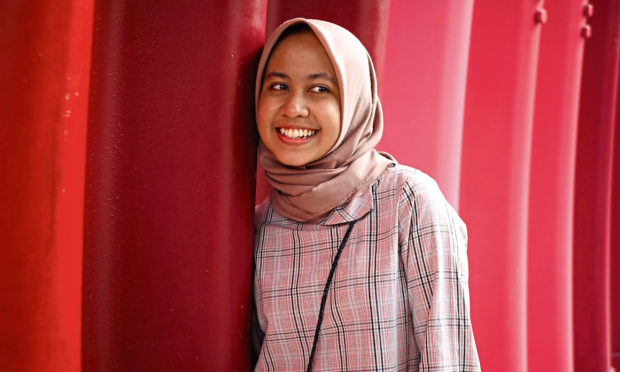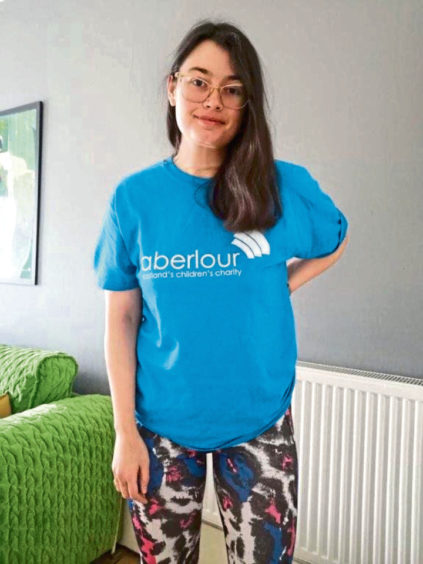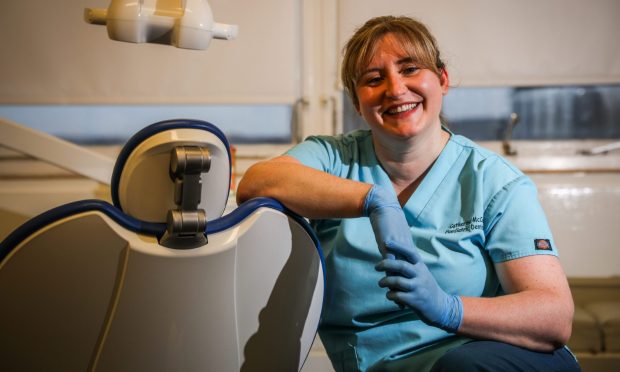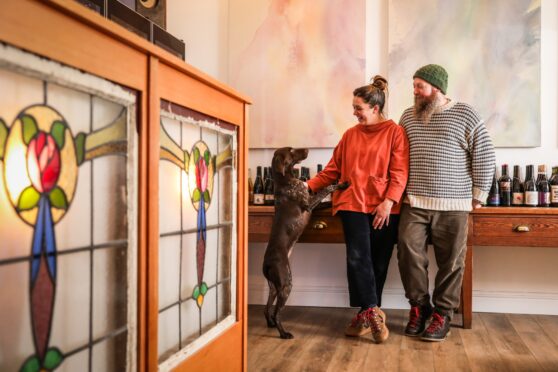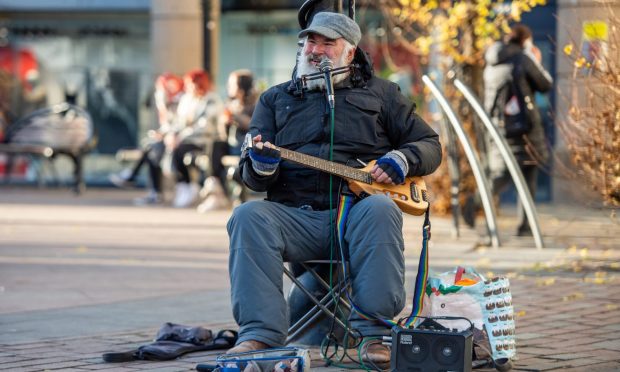Dozens of young refugees and victims of trafficking arrive in Scotland, alone and unsupported, every year. Thankfully, the Aberlour Children’s Charity is on hand to help with its Scottish Guardianship Service.
Aberlour, which is based in Stirling, is one of Scotland’s largest children’s charities and supports over 7,500 vulnerable children and their families across the country. the charity provides a range of services, including residential and fostering, recovery, early years, disability and early intervention, to improve the lives of the young people and families they support to help them thrive.
Inverness-based company The TEFL Org has partnered with Aberlour as their 2021 Charity of the Year and is helping them to fundraise for the Befriending Young Refugees Scheme.
Figures from the Scottish Guardianship Service show the number of unaccompanied young people seeking refugee protection in Scotland has more than doubled: data recorded shows that the service helped 165 children and young people who arrived in Scotland in 2019, up from 81 who arrived in 2018.
Graeme Marshall, assistant service manager with Aberlour’s Scottish Guardianship Service, explains: “We help refugee children and young people, and victims of trafficking who arrive in Scotland alone, by providing social and community support.
“The service supports unaccompanied asylum-seeking and trafficked children and young people. All of the refugee children and victims of trafficking that we support have arrived in the country without their parents.”
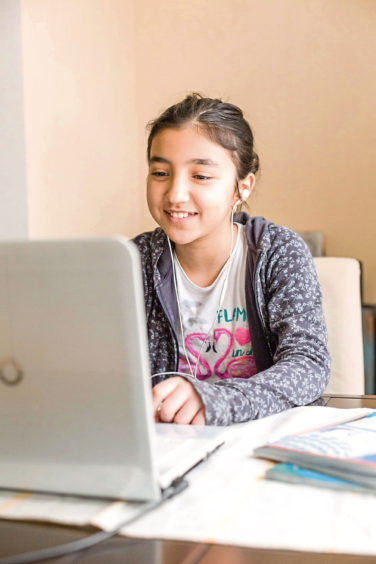
The TEFL Org was established back in 2008, originally as TEFL Scotland, by Jennifer MacKenzie and Joe Hallwood. The pair met while teaching English in Greece and after years of teaching across the UK and Europe together, decided to form their own teacher training company to share their experience and knowledge of TEFL with other budding teachers.
“At Aberlour we know that not all children are born with an equal chance,” Graeme continues.
“Together, we will overcome poverty, disadvantage and discrimination. Our mission is to reach Scotland’s vulnerable children as early as possible. Over the last 10 years the Scottish Guardianship Service has supported nearly 700 asylum-seeking and trafficked children and young people who have arrived in Scotland alone.
“The service is provided by Aberlour in partnership with the Scottish Refugee Council,” says Graeme. “The children and young people supported by the service have been through unimaginable trauma. and now, they must cope with being apart from their families in a strange, new country.
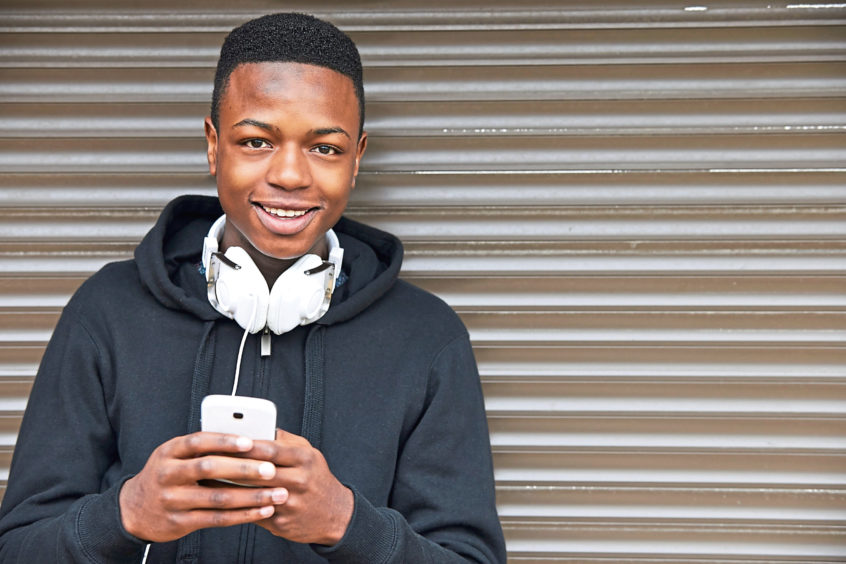
“In addition, the welfare and immigration systems are very complicated and it can be difficult to understand. The Scottish Guardianship Service helps each child or young person to navigate the immigration and welfare processes,” he continues.
“The service acts as an advocate on their behalf, in order to make sure their voices are heard. Finally, they offer emotional support needed to go through the process, helping each child or young person to make informed decisions about their future and to settle into a new life in Scotland.”
The Befriending Young Refugees scheme matches young refugees and asylum seekers with a trained volunteer befriender.
“They work one to one with the young people, so they can navigate their local area and connect with their community,” Graeme explains.
“Moving to an unfamiliar country and community can bring many challenges for young refugees and asylum seekers. These challenges include language and cultural barriers, poor mental health, the impact of trauma and anxiety.
“Hence, our volunteer befrienders can play a significant role in their lives as they adjust to their new home.”
The inspiration for scheme was sparked in 2013 after speaking to the young people supported by the Scottish Guardianship Service.
“Our team realised the importance of social relations and social networks as key to helping that young person settle in their new community. The Scottish Guardianship Service was not primarily designed to combat social isolation and loneliness so the Befriending Young Refugees scheme was created to respond to this need.
“We have had continued overwhelming support for the scheme since its launch in 2019. Young People felt that they had a Befriender who helped to reduce their feelings of loneliness and isolation through just being there or helping them link into local clubs and groups reflecting their interests and hobbies allowing them to develop new friendships in their local communities,” says Graeme.
The pandemic has added an extra dimension to the Befriending Young Refugees scheme.
“We works with young people who, pre-Covid-19, were already dealing with social isolation.
“Social distancing restrictions and lockdown have therefore been extremely difficult for many of the young people we support,” Graeme reveals.
“These young people are already facing a great deal of uncertainty in many areas of their lives which, added to the uncertainties faced by us all during this pandemic, has caused much distress. Befriending therefore became even more important.
“Moving to distance befriending posed a number of challenges. After consultation with each volunteer and young person about what they would like the service to look like over the next few months, some matches moved to regular video calls, others to phone calls and some decided that they would rather wait until meeting in person was possible again.
“Even just getting a regular check-in call from someone thinking of you became much more important,” he continues.

The team have organised extra activities for young people to keep them engaged and involved during this difficult time.
“These included an informal English language class facilitated by one of our volunteer befrienders and partnering up with Musicares to deliver music lessons,” says Graeme.
“Musicares provided instruments and a 10-week block of lessons. Some young people built on their existing knowledge of instruments, with others going from complete beginners on the guitar or the ukulele, to being able to play some of their favourite songs.
“Some matches were able to resume over the summer when the restrictions eased slightly – many volunteers have been taking advantage of the Nextbikes scheme, exploring new parts of Glasgow by bike. We have also been supported in this by the Bikes for Good ‘Bikes for All’ scheme.
“We are extremely grateful to our volunteer befrienders for being such consistent sources of support in their befriendee’s lives and for their creativity and flexibility in making visits engaging and fun, despite all the challenges posed by restrictions.
“And we’re very excited to expand the project to the East Coast and we have just completed our recruitment campaign,” he smiles.
Erin Mackenzie, The TEFL Org’s content marketing manager, started volunteering for Aberlour’s Befriending Young Refugees Scheme in 2019. After completing her training, which took around six months, she was matched up with her first young person in August that year.
Due to the pandemic, Erin and her young person have had to adapt to meeting virtually rather than in person, and now catch up regularly using Zoom.
“I’m really proud to be part of the Befriending Young Refugees scheme,” she says.
“All of the young people we volunteer with arrived in the UK alone and under the age of 18, so being able to help them settle in and get to know the city they’re living in feels like an important thing to be involved in, especially during the Covid-19 pandemic. With restrictions in place being very isolating, it feels even more important to have that regular contact with them each week.”
Before lockdown Erin was taking her young person to various places around their local area.
“I took the first young person I was matched with to places like the cinema, galleries, restaurants, and cafes, but I met my newest match during the pandemic and we’ve been very restricted,” she reveals.
“We haven’t been able to do much in the way of indoor activities, so we’ve mainly gone for walks around the city or, if the weather has been bad, gone to a cafe. Due to lockdown measures constantly changing and it being winter it’s been a real challenge, especially when sitting indoors anywhere was no longer an option.”
Erin feels she gets a lot out of the scheme too: “The best part is just getting to know the young people, which has been a real privilege,” she smiles.
“I have also improved on certain skills, such as communication – by being clearer I’ve learnt how to communicate better with English language learners and now also understand what is helpful to them as they work on their language skills.
“If you’re looking for a voluntary role that’s rewarding and fun at the same time then get involved! Everyone who works at Aberlour is lovely and the young people are wonderful, it’s a great thing to be a part of.”
For more info or to donate to Aberlour, visit aberlour.org.uk For more info on The TEFL Org, visit tefl.org
